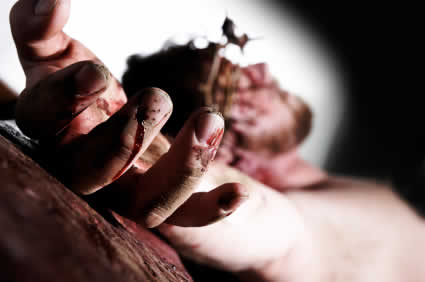A friend of mine shared this story recently. My friend is part Samoan and part Hawaiian. He was born in Hawaii but moved to Samoa during his childhood.
Adjusting to the new cultures in this high-context society was difficult for his brother and him, but they made a friend in one of the locals. Their friend, as it turns out, was the son of the High Chief.
We might expect the son of a high-class family in power to be arrogant and dismissive of foreign-born, mixed race kids who were new to the area, but he was anything but. He was friendly and took a personal interest in helping my friend and his brother adjust.
He taught them local customs, like cooking the family meal on hot stones outdoors every Sunday. He taught them local culture, like the need to show respect for elders. He taught them the local language, and he helped them to fit in. He was a good and faithful friend.
One day, the town drunk appeared as the three boys were playing outdoors. Children knew him to be a violent and abusive man, and they avoided him whenever possible, but today, he caught the boys by surprise.

My friend could tell he was drunk again, and he could see the rage in his eyes. This day, he had come for the two foreign-born boys.
But just as he moved to attack them, the son of the High Chief stepped between his friends and the man. The man’s anger snapped, and he began to beat the boy mercilessly.
Several times, he knocked the boy to the ground, but each time, the boy would stand again, blocking the way to his friends.
My friend and his brother asked each time he fell if they should go for help. Should they go to get the townspeople, who would come and rescue their friend, the son of their High Chief?
The townspeople wouldn’t allow such a crime to happen to their leader’s family. In fact, they might have even killed the drunken man for what he had done.
But each time, the answer was, ‘No,’ and the boy would stand again to take the beating.
When the man’s anger had been spent, he left them alone, and the boy was taken to the hospital to treat his wounds.
My friend and his brother visited him the next day. His face was unrecognizable under the bruising, the cuts and the swelling, but he was alive, and he would recover.
The boys looked at their bandaged friend and asked him to solve the mystery that troubled their hearts,
“Why wouldn’t you let us go for help?”
He looked at them as the teacher who patiently tries to birth a new way of thinking in the minds and hearts of his students.
“I have taught you so much. This is what it means to be the son of the High Chief.”
The boys couldn’t have asked for a clearer picture. Their friend, knowingly or not, had shown them an image of what Jesus Christ did for each of us when He went to the cross. He stood between us and the evil one, who wanted to hurt us. He took the beating that was meant for us.

Had Jesus wanted, legions of angels would have come to His rescue, yet he refused to call for them.
Each insult, each beating, each whip of the lash, each thorn of the crown He accepted as an act of love for us. And each time He fell on the road to Golgotha, He stood again.
His purpose was set; His mind was determined; no matter the cost, He would stand in the gap for us, because This is what it means to be the Son of the High Chief.
This post was originally published in January 2010 on Michael’s personal blog, Build Your Walls! Guard Your Gates!







5 Comments |Add a comment
Wow…so powerful, especially since I watched Passion of the Christ yesterday for the first time ever. It stunned me so I couldn’t even cry, but tears welled up a lot. Very powerful.
That is such a wonderful illustration of just how much God cares for us! awesome story!
Thank you for posting this beautiful reminder, Michael!
Wow! What a powerful story. Thank you for sharing it.
**Powerful beyond words**